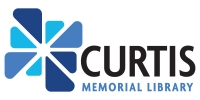Recent Genealogy Posts:
2017 Maine State Genealogy Fair – July 8, 2017

The 2017 Maine State Genealogy Fair (July 8 from 9:00am to 2:00pm) is FREE to all. Visit The Maine Genealogical Society and dozens of other exhibitors who want to help you research your Maine family history. Whether you are a seasoned professional looking to learn more about the resources available across the State, or just thinking about starting to research your own family history and wondering how to get started, there’s something for everyone.
Brick Wall Busters are back at the Genealogy Fair this year, better than ever. Attendees will have a chance to meet one on one with a seasoned researcher for tips on finding that one elusive ancestor.
The 2015 Genealogy Fair was attended by 300 people and a lot of great fun was had by all. We have taken our learnings from that event and are planning a bigger, and better event for 2017. Please join us as we explore all Maine History and Genealogy has to offer in this free one day event.
Virtual Photo Storage Ideas
If you are anything like me, not only do you have boxes and boxes of traditional paper photographs but you also have hundreds (thousands?) of photos on your telephone or tablet. I’m having a hard enough time organizing my family’s photos. The thought of letting my digital photos get disorganized or lost throws me into something of a panic.
The good news is that today there are any number of resources to help you organize and store your digital photographs. The bad news is that you are still going to have to manage your traditional photographs yourself!
I have an iPhone so I’ve gravitated to storing my digital photos on iCloud. iCloud Photo Library stores every photo and video you take, and keeps them up to date on all your devices. Any edits you make are automatically updated everywhere. You can manually curate your photos into collections. On the whole if you are a Mac user, iCloud Photo Library is a good option.
However, I have been curious about other options, mostly because I would like something with more robust tools to help curate and organize photos. To learn more I went searching for informational articles that compare and contrast the options. Following is an article I discovered that is worth the time to read particularly if you value your images and want to preserve them for inclusion in your family genealogy. Happy reading and research!
Techlicious blog http://www.techlicious.com/tip/best-sites-to-store-photos-online/
Free, free, free!

Of particular interest was the link to the article “50 Free Genealogy Sites”. There were several sites listed that I hadn’t heard of before so I will definitely be checking them out this afternoon!
Both articles were on the Family History Daily blog which can be found at www.familyhistorydaily.com. I check this site out regularly because it identifies good resources for the average genealogist. The site does have a lot of ads which can be a bit annoying but the information provided makes it worth the read. The website says it uses genealogists and researchers to provide the articles on the site but I wasn’t able to identify any specific details about the editors. So, I would be a bit cautious about the articles but I think the lists of research tools are just fine. Happy research!
Genealogy treasure trove of learning opportunities at BYU

BYU provides free webinars every month around different genealogy topics. They also maintain a Youtube channel of hundreds of past genealogy focused webinars. To access the past webinars simply go to Youtube (www.youtube.com) and search for “Brigham Young University Family History Library”. Topics cover a very wide spectrum from “The Ultimate Brick Wall Busters” to “Fun Ways to Write a Life Story”.
The website also has a very rich and detailed list of genealogy websites across the web – you can find the list here Some of the resources identified on this list require a BYU password but many are free and accessible to all.
I particularly enjoyed the list of map resources which led me to Old Maps Online (www.oldmapsonline.org). If you have ever taken a beginning genealogy class from me you’ll know that one of the first resources I tell you to find are historical maps from the locations you are planning to research. Old Maps Online seems to be a good place to start that search – happy research!
Below are links to some genealogy resources – please note that HeritageQuest requires a Portland Public Library (PPL) card. For information on getting a PPL card (all Cumberland County residents are eligible), click here. Curtis Library has a card and can use it to get you access when you are in the library. Access to American Ancestors is through Curtis Library’s subscription and can only be used from inside the library.







